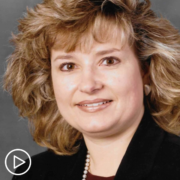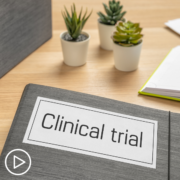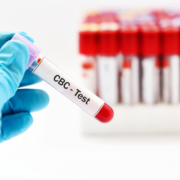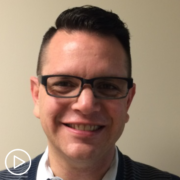What Is the Patient’s Role in WM Treatment Decisions?
What Is the Patient’s Role in WM Treatment Decisions? from Patient Empowerment Network on Vimeo.
Dr. Jorge Castillo discusses the patient’s role in their Waldenström macroglobulinemia (WM) treatment decisions and shares advice encouraging patients to be active participants in their care.
Dr. Jorge Castillo is Clinical Director at the Bing Center for Waldenström Macroglobulinemia Dana-Farber Cancer Institute and Assistant Professor of Medicine at Harvard Medical School. Learn more about Dr. Castillo, here.
See More From The Pro-Active Waldenström Macroglobulinemia Patient Toolkit
Related Programs:

|

|

Why Patients Should Speak Up About WM Symptoms and Side Effects |
Transcript:
Katherine:
What do you feel is the patient’s role in treatment decisions?
Dr. Castillo:
From my perspective, the patient’s role is very important. I need, as a physician, that the patient feels that it’s part of the team here. So, when patients come to see me, I strongly encourage patients to bring as many people as they want with them. If they want somebody on FaceTime at the same time, I’m happy with that too. And that helps because the amount of data that we provide, the amount of information that we provide, is a lot in terms of quantity. But sometimes, it’s not easy to understand when you just hear it one time, right?
So, having somebody taking notes, having somebody else taking notes, having somebody else listening, somebody else asking questions, and then somebody else explaining back to the patient – the patient is looking for the best for them, but if he’s also affected by the whole process. It would be naïve to feel – or to think – that somebody was told they have an incurable blood cancer, and they are completely paying attention to everything you’re saying, after you said something like that.
So, I think it’s important for patients to be there with family, friends, or whoever wants to be there to help out. I think that’s a really important aspect. Then, number two is you need to know about your own disease. And I am fortunate to work with a group of patients who are highly educated, to the point that they get to know more about their disease than their own doctor. And I think that’s key. I think that’s important. For me, that is not threatening or challenging. I think that is actually a good thing.
And that way, I can have a more direct conversation, meaningful, because I understand that the patient is understanding what I am saying, and we are trying to speak the same language, so I think that is key also. So, bottom line, I think education from the patient perspective, involvement of their care, I think that’s key so they can be their own best advocates.
There is going to be a lot of – since it’s a rare disease, there’s going to be a lot of backs and forths with different physicians. Some physicians are going to be more intensive and trying to treat when the patient doesn’t need to be treated. The opposite is also true in which a patient, they do need treatment, and the physicians are saying, “No, we can wait a little bit longer.” And again, that has nothing to do with the quality of the doctor. It’s just the fact that the disease is rare, and to keep up with it is very difficult. So, the patient being their best advocate is actually a very important role that they should have.
Katherine:
Knowledge is power.
Dr. Castillo:
That’s right.










